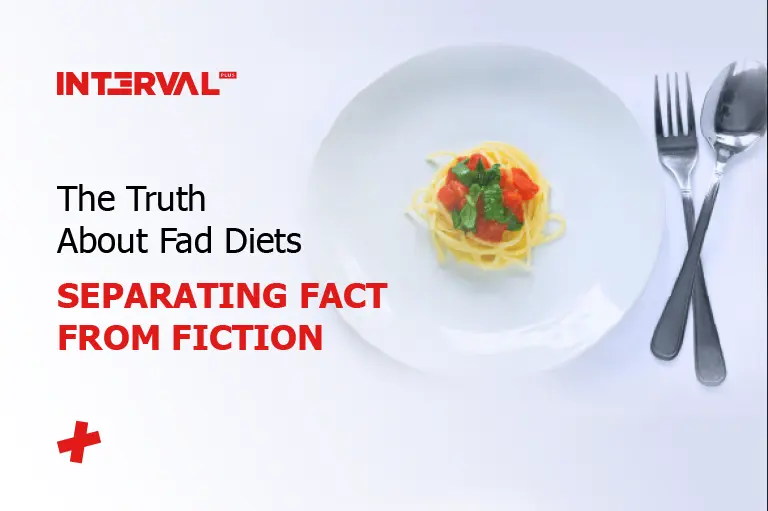In the ever-evolving world of weight loss, fad diets often capture our attention with promises of quick results and effortless transformations. However, it’s crucial to separate fact from fiction when it comes to these trendy and often extreme dietary approaches. In this blog post, we will debunk common myths surrounding fad diets and provide evidence-based information to help you make informed decisions about your weight loss journey. By understanding the potential risks and drawbacks associated with these diets, you can navigate the sea of misinformation and focus on sustainable and healthy eating habits.
1. The Allure of Quick Fixes:
Fad diets often entice us with promises of rapid weight loss. However, it’s important to recognize that sustainable weight loss takes time and consistency. Extreme and restrictive diets may lead to short-term weight loss, but they are often unsustainable in the long run and can have detrimental effects on your health.
2. The Myth of “One-Size-Fits-All”:
Fad diets promote a one-size-fits-all approach, claiming that a particular diet is suitable for everyone. However, each individual has unique nutritional needs, preferences, and genetic factors. What works for one person may not work for another. It’s important to focus on personalized and balanced nutrition rather than following a rigid diet plan.
3. Lack of Essential Nutrients:
Many fad diets eliminate entire food groups or severely restrict calorie intake, leading to potential nutrient deficiencies. Your body requires a wide range of nutrients for optimal health and well-being. Restricting essential nutrients can lead to fatigue, muscle loss, weakened immune function, and other health complications.
4. Unsustainable Eating Patterns:
Fad diets often impose strict rules and guidelines that are difficult to maintain over the long term. This can lead to feelings of deprivation, disordered eating habits, and a negative relationship with food. Sustainable weight loss is achieved through adopting healthy eating patterns that can be maintained for life.
5. Potential Health Risks:
Extreme and unbalanced diets can pose serious health risks. For example, very low-calorie diets can lead to muscle loss, nutrient deficiencies, hormonal imbalances, and a slowed metabolism. Additionally, diets that overly restrict carbohydrates or fats can have negative impacts on energy levels, mood, and overall health.
6. Focus on Overall Lifestyle:
Rather than relying on quick fixes, it’s important to focus on overall lifestyle changes. Sustainable weight loss involves adopting a balanced diet, engaging in regular physical activity, managing stress, and getting adequate sleep. It’s the combination of these factors that leads to long-term success.
7. Seek Professional Guidance:
When embarking on a weight loss journey, it’s beneficial to seek guidance from qualified professionals, such as registered dietitians or nutritionists. They can provide evidence-based recommendations tailored to your specific needs and help you navigate through the abundance of misinformation surrounding fad diets.
Fad diets may offer tempting shortcuts, but the truth is they often come with risks and drawbacks. Sustainable weight loss is achieved through balanced and personalized nutrition, regular physical activity, and overall lifestyle changes. Rather than falling for the allure of quick fixes, focus on making gradual, sustainable changes that promote your long-term health and well-being. Remember, your journey is unique, and seeking professional guidance will help you make informed choices that lead to lasting results.


